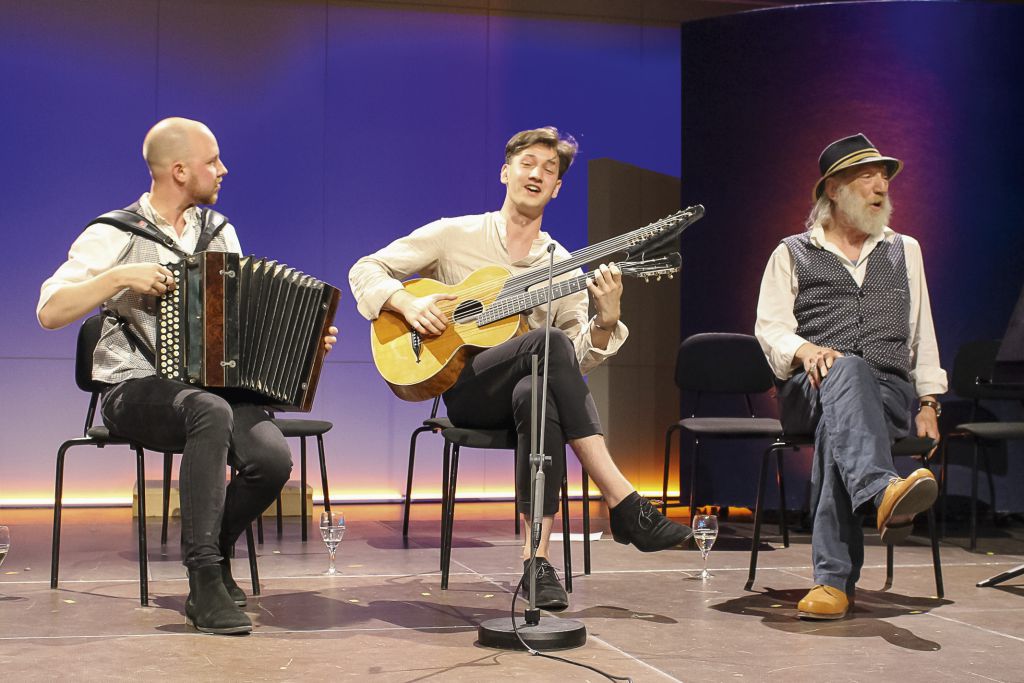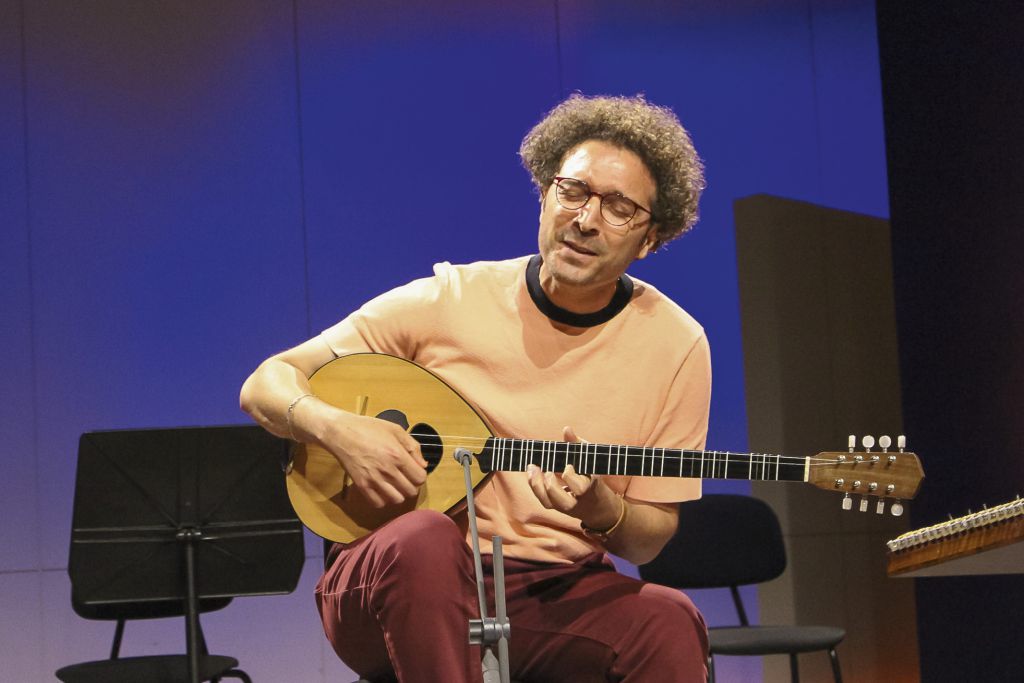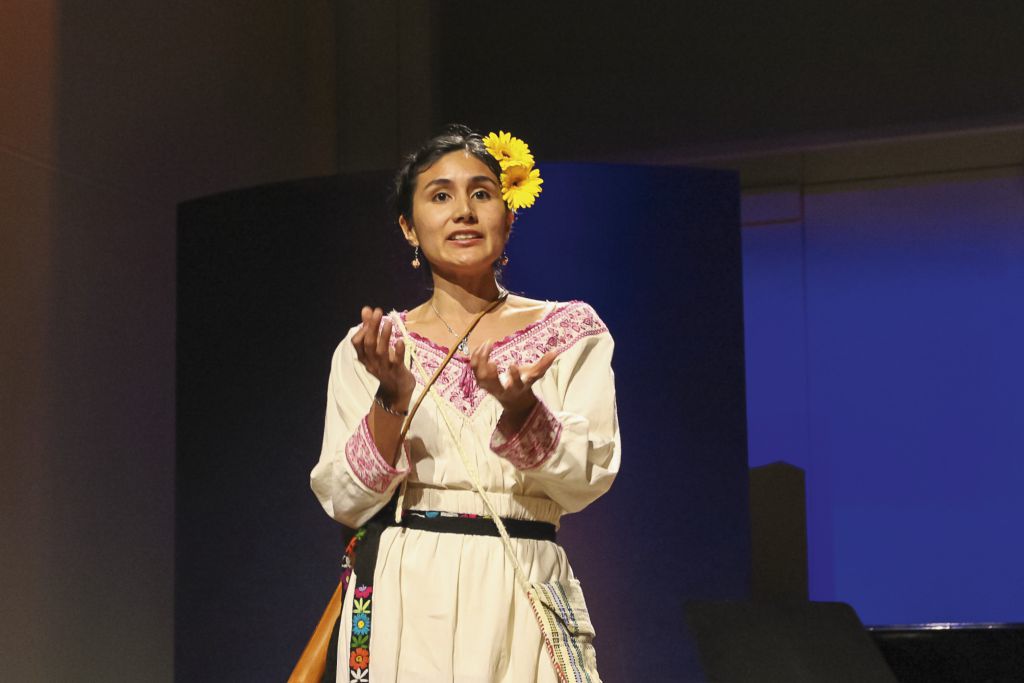An Annual Concert of Ethnomusicology Master’s Degree Students
It was a milestone in the development of the Department of Folk Music Research and Ethnomusicology—but also of the mdw—when the stage of the Joseph Haydn-Saal came alive with a celebration of musical diversity on 24 May. Again and again over its 57-year history, the Department has introduced highly contrasting musical styles to the University—from Austrian folk music to Indonesian gamelan—as part of performances mounted in a variety of locations. However, it was long the case that these musics were brought in from the outside, with the masters coming from various countries and communities. This time around, it was mdw students who presented a fascinating array of musical languages in an inaugural annual concert. The presented programme was made possible by the launch of the Department’s academic and artistic master’s degree programme in ethnomusicology in the winter semester of 2019/20. Since then, it has been possible to take an artistic entrance examination in any musical style outside of Western European classical and popular music and then deal in depth with one’s chosen style as part of a degree programme. Such an open concept, exceptional in the context of the mdw, was initially met with scepticism: How could practical musical instruction be made to work? How would we find teachers, experts? This concert, however, showed that the solutions ultimately arrived at have been a resounding success.

In actual practice, of course, offering instruction in traditional styles of music and dance as artistic specialisations without imposing any stylistic limitations is a huge challenge. A look across the international university landscape shows how those few universities, academies, and conservatories that do go beyond the traditional musical offerings of Western classical art music and (significantly less often) Western popular music in their teaching frequently offer just a predetermined selection, thereby creating new canons. Such canons of traditional musical styles tend to encompass broader regional stylistic categories and are quite often dependent on the musical expertise present among the permanent teaching faculty. Students might then, for example, have a choice between Balkan choir, gamelan orchestra, and Indian sitar.

It was precisely such predetermined offerings that the mdw decided to avoid in its conception of the new Ethnomusicology MA programme’s artistic study area. In this part of their coursework, students can pursue their own artistic ideas and contribute their own specific experience with musical styles. To this end, an individual search for suitable teachers is conducted together with each student. Alternatively, students can also gather artistic learning experiences outside of the University that can then be credited as instruction in the study area “Musical Practice”. This option is especially important in the realm of traditional music, since many styles of music and dance are hard to pack into an institutionalised academic instructional setting.
This flexible system has resulted in an impressive diversity of musical styles at the Department. This first annual concert of the students featured traditional Viennese songs alongside Burgenland Croatian folk songs; the Persian santur shared the stage with a Tyrolean hammered dulcimer, Mexican son jarocho songs followed a Tango Argentino string ensemble, and Bosnian ballads, Macedonian love songs, klezmer clarinet with accordion, and yodels and landlers with traditional Alpine instrumental forces came together to form a brilliant programme. A large ensemble with players of the daf (a Persian frame drum), a Viennese Schrammel quartet, Irish and Scottish instrumental music, and plena from San Juan were also heard, as were Kurdish songs from Syria accompanied by the buzuq.

For many of the students, 2022’s inaugural annual concert was their very first performance at this university. It was not only the first concert since the new degree programme’s creation, but also the Department’s first public performing opportunity since the onset of the pandemic over two years ago. This thrilling evening bore witness to our students’ resilience and stamina when it came to overcoming the challenges of learning in times of lockdowns and remote teaching. And for many of them, it was the motivation to once again play for a live audience that defined the true nature of this evening’s success. The Department extends its thanks to the over 120 attendees for their support as well as to all those who contributed to this wonderful evening. We hope to see you at our annual concert’s second edition in early 2023!

